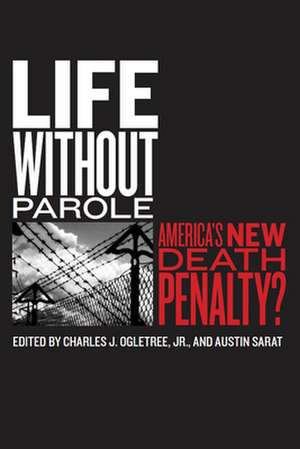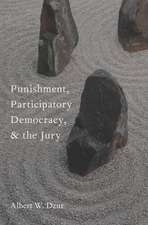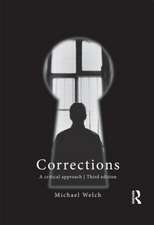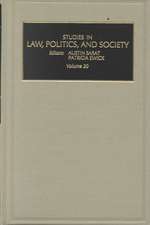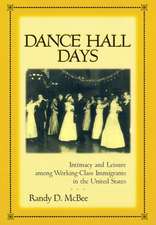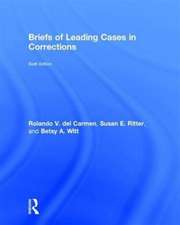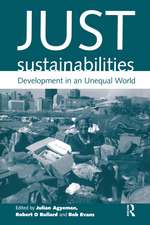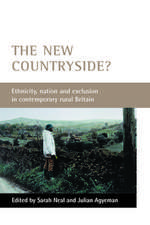Life without Parole – America`s New Death Penalty?: The Charles Hamilton Houston Institute Series on Race and Justice
Autor Charles J. Ogletree Jr., Austin Saraten Limba Engleză Paperback – 3 iun 2012
Toate formatele și edițiile
| Toate formatele și edițiile | Preț | Express |
|---|---|---|
| Paperback (1) | 243.58 lei 6-8 săpt. | |
| MI – New York University – 3 iun 2012 | 243.58 lei 6-8 săpt. | |
| Hardback (1) | 526.76 lei 6-8 săpt. | |
| MI – New York University – 3 iun 2012 | 526.76 lei 6-8 săpt. |
Preț: 243.58 lei
Nou
Puncte Express: 365
Preț estimativ în valută:
46.61€ • 48.66$ • 38.57£
46.61€ • 48.66$ • 38.57£
Carte tipărită la comandă
Livrare economică 04-18 aprilie
Preluare comenzi: 021 569.72.76
Specificații
ISBN-13: 9780814762486
ISBN-10: 0814762484
Pagini: 352
Dimensiuni: 182 x 228 x 26 mm
Greutate: 0.45 kg
Ediția:New.
Editura: MI – New York University
Seria The Charles Hamilton Houston Institute Series on Race and Justice
ISBN-10: 0814762484
Pagini: 352
Dimensiuni: 182 x 228 x 26 mm
Greutate: 0.45 kg
Ediția:New.
Editura: MI – New York University
Seria The Charles Hamilton Houston Institute Series on Race and Justice
Recenzii
One frightening by-product of the American struggle over capital punishment is the proliferation of Life Without Parole as its bastard offspring. LWOP is embraced without scrutiny by abolitionists who assume that anything is better than execution. It is enshrined as a prosecutorial consolation prize when cases meet the technical standards for 'capital' murder but defendants lack blameworthiness. The unqualified condemnation of LWOP comes from a crazy displacement of distrust that puts extra suffering on offenders because citizens dont trust those who govern. Fighting capital punishment must be a central concern in the United States. But threats to human rights rarely develop one at a time, so injustice must be fought on multiple fields of engagement. Ogletree, Sarat, and their distinguished contributors perform an important public service by taking a sustained look at yet another dangerous punitive excess. Franklin Zimring, William G. Simon Professor of Law, University of California, Berkeley
"One frightening by-product of the American struggle over capital punishment is the proliferation of Life Without Parole as its bastard offspring. LWOP is embraced without scrutiny by abolitionists who assume that anything is better than execution. It is enshrined as a prosecutorial consolation prize when cases meet the technical standards for 'capital' murder but defendants lack blameworthiness. The unqualified condemnation of LWOP comes from a crazy displacement of distrust that puts extra suffering on offenders because citizens don't trust those who govern. Fighting capital punishment must be a central concern in the United States. But threats to human rights rarely develop one at a time, so injustice must be fought on multiple fields of engagement. Ogletree, Sarat, and their distinguished contributors perform an important public service by taking a sustained look at yet another dangerous punitive excess." Franklin Zimring, William G. Simon Professor of Law, University of California, Berkeley
"One frightening by-product of the American struggle over capital punishment is the proliferation of Life Without Parole as its bastard offspring. LWOP is embraced without scrutiny by abolitionists who assume that anything is better than execution. It is enshrined as a prosecutorial consolation prize when cases meet the technical standards for 'capital' murder but defendants lack blameworthiness. The unqualified condemnation of LWOP comes from a crazy displacement of distrust that puts extra suffering on offenders because citizens don't trust those who govern. Fighting capital punishment must be a central concern in the United States. But threats to human rights rarely develop one at a time, so injustice must be fought on multiple fields of engagement. Ogletree, Sarat, and their distinguished contributors perform an important public service by taking a sustained look at yet another dangerous punitive excess." Franklin Zimring, William G. Simon Professor of Law, University of California, Berkeley
Notă biografică
Descriere
Explores the structure of life without parole sentences and the impact they have on prisoners
